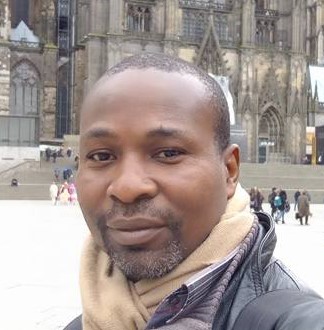Navigating Homophobia: ICT and the Wireless Imagined Homosexual Community in Cameroon
What role have the ICT played not only in the forging of transnational homosexual identities but also in the production of new homosexual spaces in Cameroon? In addition, what central role have the social media played in shaping the new forms of connections and mobility enabling many local LGBTI people to escape the homophobic politics of the Cameroon government?
Project Description
My research project aims to explore the various forms of cybernetic connections in which some young LGBTI from the cities of Douala and Yaoundé have been engaging since the introduction of internet in Cameroon in the late 1990s. The research will particularly show how these young internet-savvy homosexuals are increasingly making use of ICT to ‘come out’, to forge transnational homosexual identities, to produce wireless homosexual spaces, and especially to assert their civil rights in a Cameroonian society where sexual minority groups generally suffer from both social and political homophobia. The present project thus offers not only a new understanding of communication and mobility in Africa, but also a blueprint for reconstructing the agency of African LGBTI people.
Selected Publications
1) Ndjio, Basile, 2019. ‘Homosexuality, Witchcraft and Occult in Africa’ in Howard Chiang, Anjali Arondekar, Marc Epprecht, Jennifer Evans, Ross G. Forman, Hanadi Al-Samman, Emily Skidmore, Zeb Tortorici , eds. Global Encyclopedia of Lesbian, Gay, Bisexual, Transgender, and Queer (LGBTQ) History, 1st edition, Charles Scribner’s Sons/The Gale Group. New York
2) 2017b. ‘Sex and the transnational city: Chinese sex workers in the West African city of Douala’, Urban Studies Journal, vol. 54, 4, pp 999-1015
3) 2016, “Nation and its undesirable subjects: Homosexuals and alien ‘Others’ in Cameroon”, in J.W. Duyvendak, P. Geschiere & E. Tonkens (eds.). The Culturalization of Citizenship. Belonging and Polarization in a Globalizing World. London: Palgrave Macmillan UK, pp 115-36
